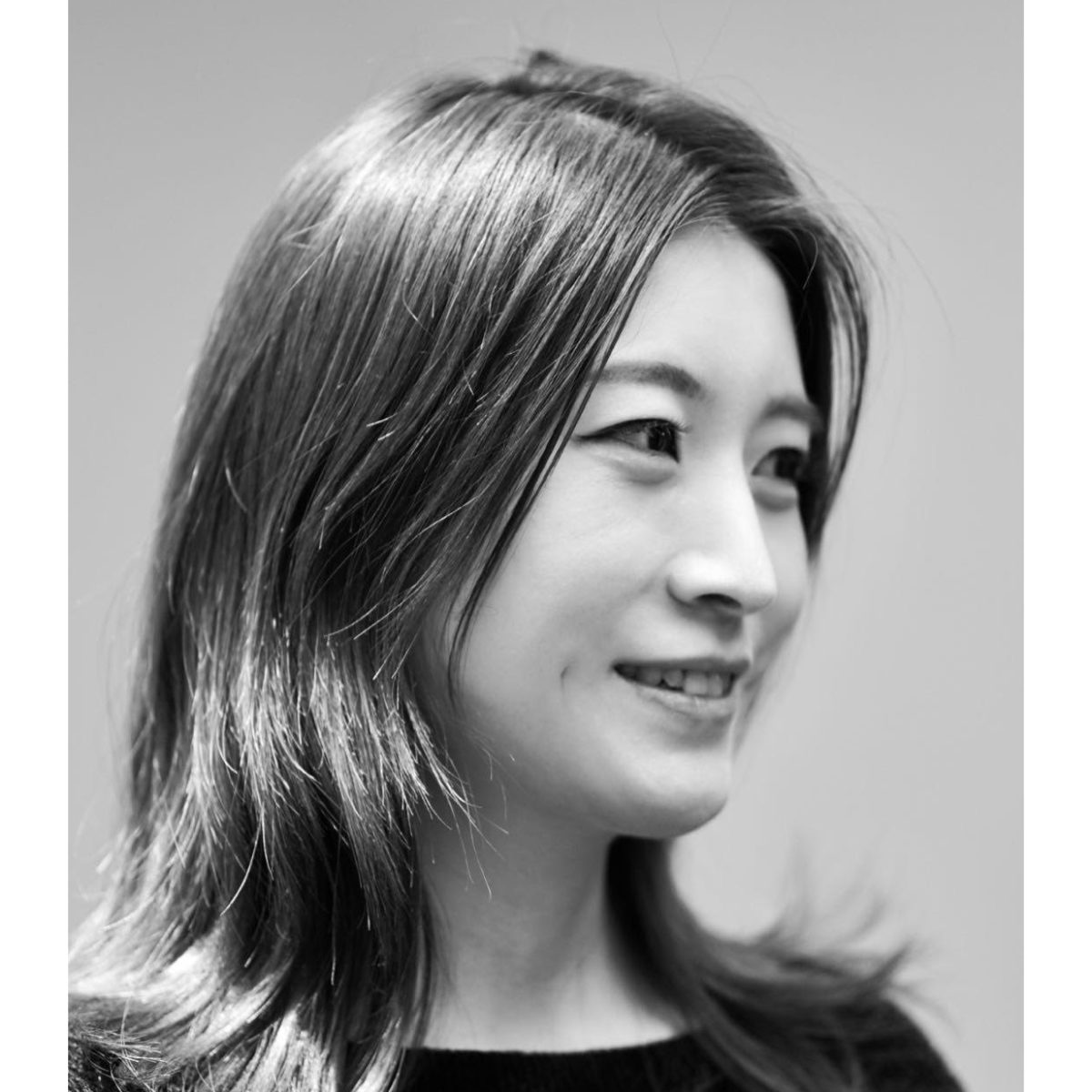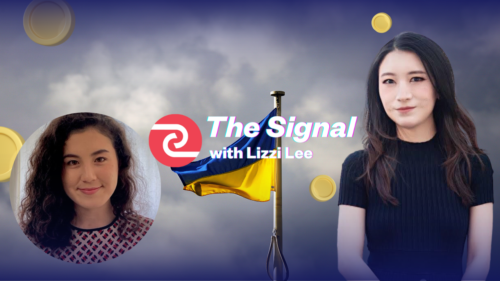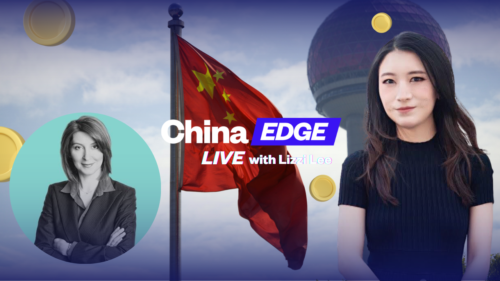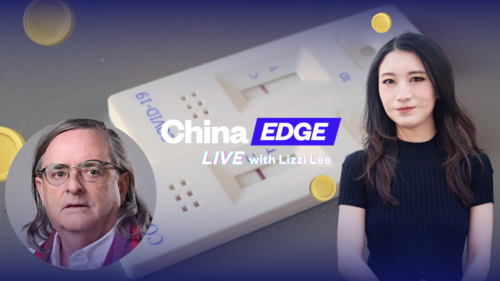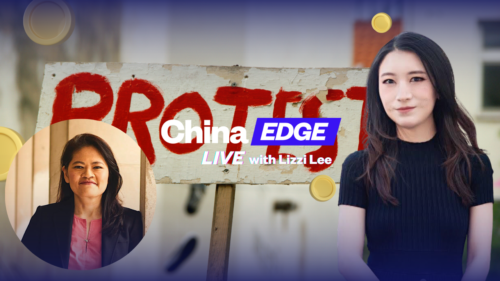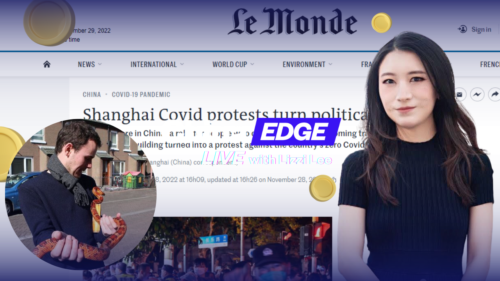How China’s state security controls its narrative in the West | Live with Lizzi Lee
Author Alex Joske talks about the great lengths to which the CCP’s long-reaching security arm manipulates the West’s attitudes about China.
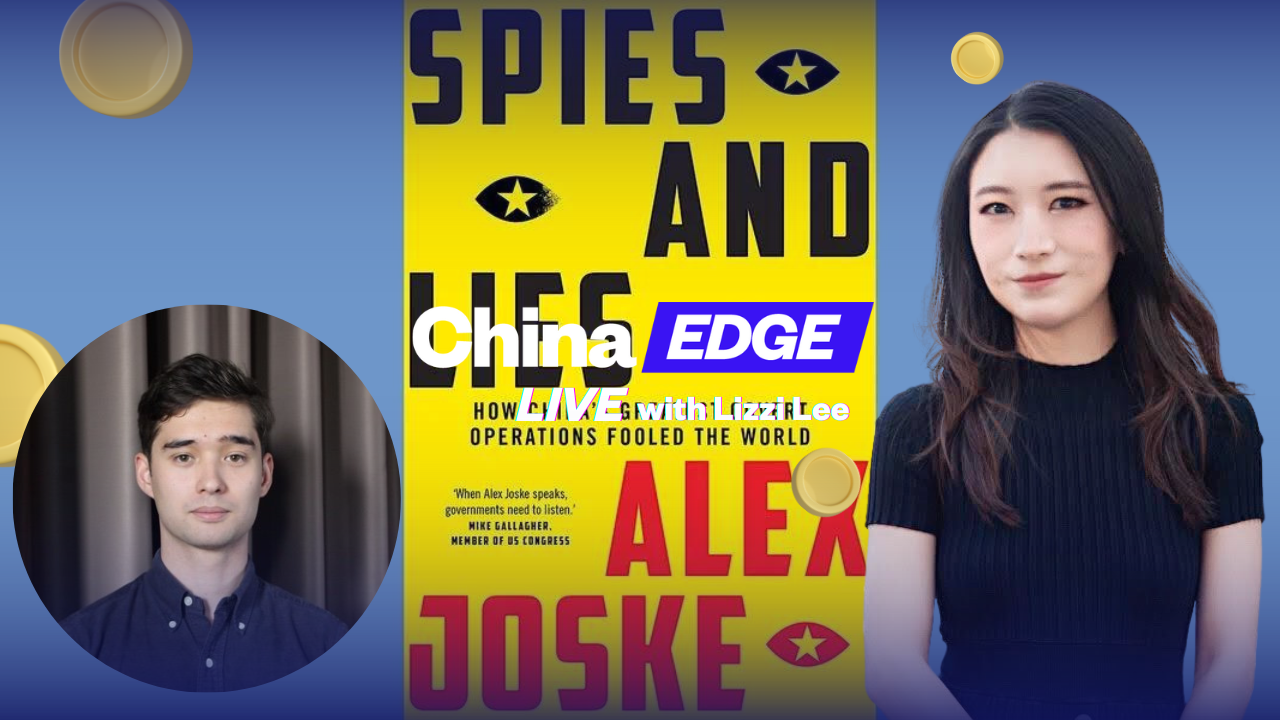
In this episode of Live with Lizzi Lee:
Alex Joske talks about his book, Spies and Lies, which goes behind the veil of China’s Ministry of State Security to reveal how agents of the CCP have spent decades manipulating the West’s attitudes about China’s rise.
Through interviews with defectors and intelligence officers, classified Chinese intelligence documents and original investigations, Joske unmasks dozens of active Chinese intelligence officers along with global MSS fronts — including travel agencies, publishing houses, newspapers, a Buddhist temple, a record company, and charities.
Below is a transcript of the video:
Lizzi Lee: Joining me today is Alex Joske, author of a new book, Spies and Lies: How China’s Greatest Covert Operations Fooled the World. Thank you so much, Alex, for joining me today. Alex, I wonder if you can tell me a little bit more about MSS. What’s its mission and what’s its scope of operations?
Alex Joske: So the MSS, or the Ministry of State Security is China’s top intelligence agency. It has a remit for all sorts of things from protecting the Chinese Communist Party from dissidents to countering foreign spies operating in China to collecting information on foreign governments, and most importantly, as I focus on in the book, the real focus of its operations is influence building: building influence in foreign governments, in foreign capitals, among policymaking communities to shape decision making around China.
Lizzi: In your book, you detailed how intelligence officers can pose as liberals to influence foreign elites’ view on China. I wonder if you can elaborate a little more on such intelligence operations, for example, the one about George Soros, as you write about in the book.
Alex: I might start with a guy called Ding Huisong. He’s an MSS officer, a full-time career employee of the Ministry of State Security. But to many people, he was known as a scholar, as the vice president of the think tank called China Reform Forum. And he was using this to present himself as a reformist, as a liberal within the Chinese Communist Party establishment.
And we have a lot of detail on the kinds of things he was saying to foreigners behind closed doors, because they’re reported in U.S. embassy cables that have been released by WikiLeaks. And in these cables, Ding Huisong was telling American diplomats that China would inevitably go through gradual democratic reform, and that it would have to reckon with the legacy of the Tiananmen massacre.
But remarkably, when WikiLeaks cables were released, denouncing didn’t seem to be punished for saying any of these things. He remained in his positions in the MSS, and this all was part of a clear pattern of MSS officers trying to present themselves as reformists and push these ideas into foreign governments.
In the case of George Soros in the 1980s, he was operating in a period where there was real reform and democratic sentiments within parts of the Chinese Communist Party.
So, he went into the country wanting to capitalize on that to encourage these views to build civil society within China. But almost immediately, the foundation he set up in China was basically taken over by the Ministry of State Security, something that Soros himself, to his credit, has really talked about and explained, which just shows the focus the MSS has on managing foreign ideas and foreign engagement with China and trying to engage with foreign elites.
Lizzi: Your book also reveals some surprising aspects of the China-Australia relationship. For example, Bob Hawke’s first China trip. I wonder if you can tell us a little more about your findings.
Alex: Yeah, Bob Hawke is quite a similar case to Soros in some ways. Bob Hawke really built quite a close relationship with Chinese leaders like Hú Yàobāng 胡耀邦 and Zhào Zǐyáng 赵紫阳 in the 1980s when he was prime minister.
He cried on TV in a speech about the 1989 Tiananmen massacre and welcomed in tens of thousands of Chinese students in Australia as a response to the massacre. So a guy with a lot of hopes and dreams that China would become a more liberal and democratic country and a lot of love for the Chinese people. After he left politics, he was invited back to China.
And this surprised him because he thought he had destroyed his relationship with the Chinese government because of what he’d said about the Tiananmen massacre. He went to China nonetheless, and was given an audience with Jiāng Zémín 江泽民 himself, who thanked him for all that he’d done for the Chinese people and told him China never forgets its friends.
But what happened behind the scenes as I document in the book was that the think tank that invited him to China was clearly working with the MSS and also had a lot of involvement from Chinese military intelligence officers. And it was at this same first trip in 1993 that the think tank that invited him also set up a business with him.
So, the secretary general of this think tank and Bob Hawke formed a company that specialized in selling foreign companies access to Chinese politicians and officials.
What Bob Hawke didn’t seem to realize was that his business partners were undercover intelligence officers and their associates.
So, the secretary general, his business partner, was also a member of an MSS front organization. His father was running a front company for the MSS.
And then one of the senior members of this think tank was an undercover MSS vice minister. The same vice minister who oversaw taking over Soros’s foundation in the 1980s so clearly had responsibility for engaging undercover with foreign elites.
Lizzi: But I wanted to turn to sort of the other aspect of the story. We know vigilance about Chinese spying and influence is important, but it’s also a slippery slope toward justifying racial profiling, especially in some right-wing corners of the world. How should policymakers strike that balance?
Alex: I think it’s really important to focus on the structures as in the actual organizations and networks directly controlled by the Chinese Communist Party. And that’s why in this book my starting point was the MSS itself.
I tried to understand its structure, its front organizations, its officers, and then work out from there, rather than looking at Chinese people overseas and trying to connect them to the Ministry of State Security, because these activities are generally focused quite narrowly on elites and top united front figures overseas. So, I think that that kind of mentality is really useful.
Governments need to be careful about their language, especially politicians, and can’t be pulled into this game of trying to score points with dog whistling and stirring up racist sentiment.
And I think there’s a lot more work that can be done to engage with Chinese communities to show that governments recognize they’re quite often the largest victims of these CCP influence campaigns, that it’s people in the Chinese community who are being harassed by agents of the Chinese government who are having their family members back in China threatened by the Chinese government.
At the same time as governments need to be dealing with, you know, actual spies who are working for the Chinese government, they should also be really emphasizing that side of protecting people and showing that countering influence is also about strengthening civil liberties.
Lizzi: We’re also at this very important moment in CCP history. Xí Jìnpíng 习近平 is all but certain to secure another five-year term. Observers here in the U.S. have generally noted that Xi Jinping’s geopolitical ambitions have destabilized the Pax Americana of the Asia Pacific. How do you think Australia should navigate the China challenge?
Alex: Yeah. Australia’s in a funny position. We’re in Asia, but we’re allied with the United Kingdom, with the United States, and have close relationships with Europe, Japan, and India. I think Australia can’t be a bystander in the events in our Indo-Pacific region.
Anything like a conflict in Taiwan or greater aggression from China overall has serious implications for Australia’s future. So, an important thing would just be to work more closely with the U.S., and strengthen the quad, Australia’s growing connections with Japan and India.
And invest in its China expertise. This is a challenge that’s going to be with us for decades and it’s going to take decades, I think, to really raise the level of China knowledge and skill within the government, within Australian society and universities, and that will feed into better policy.
